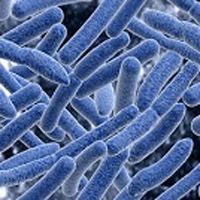Article
Altering the Gut Microbiome with Early Life Exercise
Author(s):
Exercise during early life may alter the gut microbe, in addition to promoting healthy brain and metabolism, according to findings published in the journal Immunology and Cell Biology.

Exercise during early life may alter the gut microbe, in addition to promoting healthy brain and metabolism, according to findings published in the journal Immunology and Cell Biology.
Researchers from the University of Colorado at Boulder observed juvenile rats to determine the effects of exercise on the microbial structure. The rats were compared to their sedentary counterparts as well as adult rats.
The researchers learned there likely is an opportunistic period in early human development in which patients can optimize the chances of better lifelong, overall health. However, the gut microbiome is somewhat in flux during the adult life and can be impacted by factors like diet and sleep patterns.
At a young age, though, the mice demonstrated the ability to be shaped and influenced by exercise, which the researchers believe can translate to human examples.
“Exercise affects many aspects of health, both metabolic and mental, and people are only now starting to look at the plasticity of these gut microbes,” senior author Monika Fleshner, a professor in CU-Boulder's Department of Integrative Physiology, explained in a press release. “That is one of the novel aspects of this research.”
The statement added that the nearly 100 trillion microorganisms inhabiting the gut microbe can promote healthier brain and metabolic activity over the course of a lifetime when influenced by early life exercise.
According to researchers, the microbes that invade the gut in the early life are important for immune system development and other neural functions. Up to five million genes may be added to a person’s genetic profile based on the gut microbial makeup and therefore, the researchers said, are significantly important to a human’s physiology.
The juvenile rats that exercised daily developed a more beneficial microbial structure, the researchers said, which included the expansion of probiotic bacterial species in their gut when compared to the sedentary and adult rat cohorts.
Even when the adult rats exercised, this finding remained true.
While the researchers are still unsure as to what specific age range the gut microbe community is most likely to change during, they believe earlier is better.
Prior studies demonstrated that the brain responds to microbial signals from the gut, but investigators do not know how, the statement commented. These signals can influence healthy brain functions and offer antidepressant effects, Fleshner added.
In the future, the researchers want to examine ways to promote positive gut microbe plasticity in adults — a patient population most likely to have change resistant gut microbial communities.





